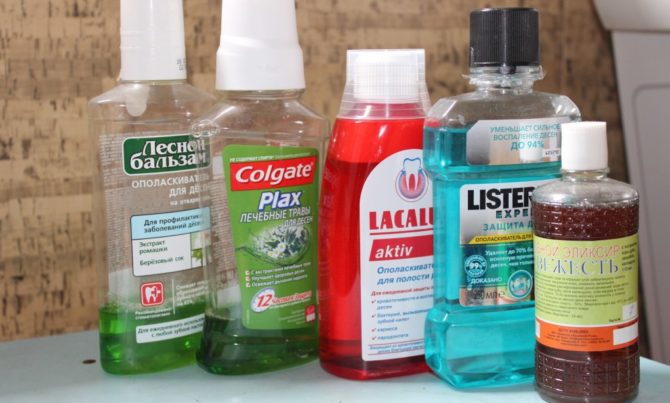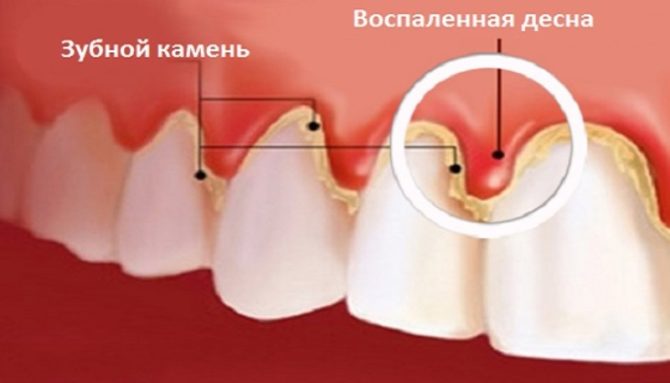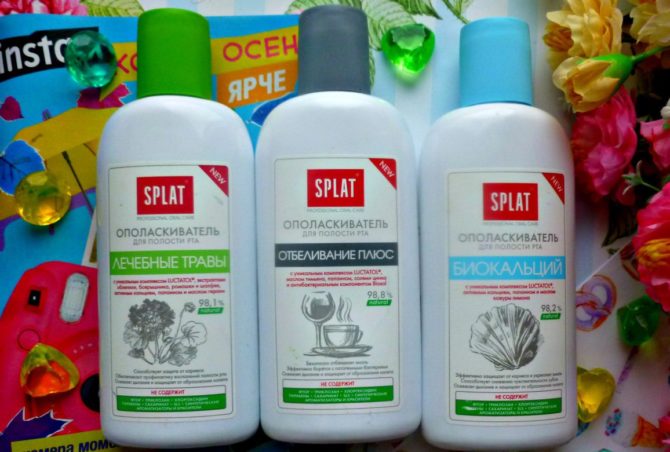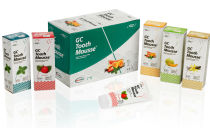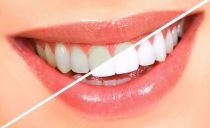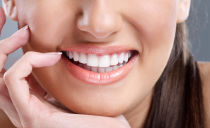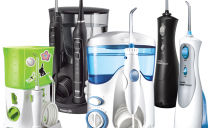Mouthwashes: how to choose, composition, rating of the best dental rinses
Mouthwash allows you to minimize the risk of pathological processes in the teeth and gums, and also deactivates the already begun inflammation. Offered and advertised drugs vary in chemical composition, methods of exposure and degree of effectiveness. To choose the right mouth rinse, it is more advisable to consult a dentist.
Content
Standard application
For a good rinse, they usually take about 20 milliliters of liquid and rinse their mouth with it from 30 seconds to 2 minutes, and then spit out. It is not worth exceeding the dosage, and some drugs need to be diluted with water at all, but this can be read in the instructions.
Then it is better for some time (10-15 minutes) to refrain from eating food and drinks. It is most effective to use a rinse aid after eating or after each brushing, but you can limit it to 2 times a day. This solution is a therapeutic agent, and therefore do not use rinse aid continuously or uncontrollably. The standard course of use is 14–28 days.
Composition of mouthwashes
The exact composition of the mouthwash depends on the brand and manufacturer, but there are some active ingredients that are characteristic of all solutions. These components include:
- ethanol;
- water;
- xylitol;
- chlorhexidine;
- benzoic acid;
- hydrogen peroxide;
- domifen bromide;
- fluorides;
- calcium citrate;
- essential oils;
- herbal extracts.
Who needs a rinse with ethanol
This substance is found in many aseptic mouthwashes and helps fight existing pathological processes. It is prescribed for inflammation of the oropharynx, since an infection from the throat often spreads to the mucous membrane of the mouth.
In some modern rinses, ethanol is absent, information about this can be read on the packaging. The use of such drugs will be interesting for drivers who cannot use a regular rinse aid because of the ethanol contained in it.
Mouthwashes with chlorhexidine (Chlorhexidine)
This substance has good antimicrobial and antiseptic properties. It is actively fighting the possible root causes of caries and periodontal pathologies. An oral rinse with chlorhexidine reduces the risk of a dry hole forming during tooth extraction, treats prosthetic and candidal stomatitis, and also helps to cope with dental pathologies in people with immunodeficiencies.
Rinses with or without fluoride
Useful properties of fluoride for the oral cavity:
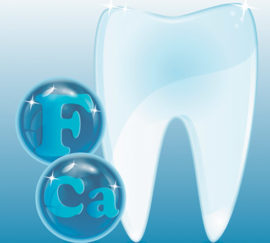 it remineralizes and strengthens the enamel;
it remineralizes and strengthens the enamel;- restores teeth in the initial stages of caries;
- prevents periodontitis and periodontal disease;
- reduces tooth sensitivity.
But fluoride compounds are quite toxic to the body and tend to accumulate in the tissues. If this occurs in tooth enamel, then it gradually collapses: first white spots appear on the teeth, and then they turn yellow, corroding the dental surface.
If a person uses fluoride toothpaste for teeth, then he should choose a rinse without fluoride.
Purpose of other active substances
- Benzidamine has an analgesic effect.
- Betamethasone is indicated for serious inflammatory processes in the oral cavity.
- Hydrogen peroxide cleans tooth enamel and kills anaerobic bacteria.
- Cetylpyridinium chloride helps eliminate bad breath.
- Phenols have anti-flying properties.
- Tranexamic acid prevents bleeding of the gums.
Tetracycline is an antibiotic, but sometimes it is found in rinsing solutions and helps fight stomatitis and other inflammatory processes.
Rinse aid classification
All rinsing agents can be classified into groups:
- gum elixir that improves the microflora of the oral cavity and heals the mucous membrane;
- antifungal drug with iodine;
- powder medicine against purulent formations in periodontal tissues, before use it should be diluted with water according to the instructions;
- balm for oral cavity against caries, strengthening and regenerating enamel.
Rinse aid purpose
Rinse aid is used to disinfect the oral cavity, but often its use is necessary to cleanse teeth and gums from food debris, this is especially true for those who wear braces. The solution helps to freshen the breath, as it flushes out all pathogens, whose activity causes an unpleasant odor. It effectively fights plaque and gingivitis, and also protects sensitive teeth from various irritants.
Mouthwash prevents the spread of dental diseases (pulpitis, caries) and strengthens the gums, reducing their bleeding. This is due to the presence of fluorides in the preparation, which envelop the teeth with a dense film and prevent their destruction. As a result of the correct and timely use of the healing fluid, the sensitivity of enamel is reduced.
Some rinses fight tartar due to the presence of sodium citrate in them. This substance is able to remove small deposits on the teeth, but it can not cope with large growths.
With all its advantages, the use of rinse aid cannot replace the use of toothpaste and a conventional brush.
Gum Rinse
Mouthwash, used for gum disease, does not destroy the cause of the disease, it only relieves the symptom. Most often, gingival inflammation is caused by hard deposits and soft plaque, which cannot be removed with ordinary rinses.
When the gums are inflamed, rinse fluid can only be used as part of complex therapy for additional disinfection. If this solution is used without appropriate treatment, periodontal disease, caries, or other dental pathology may form.
Rinse aid for sensitive teeth
For sensitive teeth, one rinse is not enough. It is advisable to use a disinfectant liquid exclusively at home, and within the framework of a dentistry clinic will help:
- hardware remineralization with the closure of bare nerves and the restoration of damaged enamel;
- physiotherapy: electrophoresis with trace elements, UV radiation;
- fluoridation.
Side effects
The reaction of the body to the active substances in the mouthwash is individual and depends on many factors. The following side effects from the use of a disinfectant are usually noted:
- nausea and diarrhea;
- enamel darkening;
- dullness of taste;
- burning and dry mouth;
- increased thirst.
The occurrence of side effects is dangerous to health and usually indicates intolerance to any components or an excess of the period of use of the drug. In this case, it is better to stop rinsing your mouth with this liquid and consult your doctor.
Contraindications
The use of mouth rinses has a number of contraindications:
- the period of treatment for alcohol dependence;
- allergy to the components of the drug, including herbs;
- age up to 6 years;
- pregnancy and the period of breastfeeding.
This is due to the fact that most rinse solutions contain alcohol. Also the active substances contained in the liquid can lead to dysbiosis of the oral cavity and to dry the mucous membrane. Rinse preparations cannot be swallowed; if they accidentally get into the stomach, they can cause upset stools or nausea.
Features of choice
The choice of the right solution is due to the purpose of its acquisition. First you need to decide why you need a rinse aid, and only then proceed with its purchase.
Caries
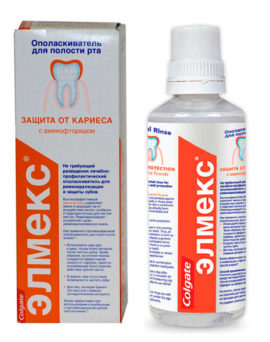 To prevent the development of caries, fluids with sodium fluoride or aminofluoride are suitable, which can protect the teeth for 2 hours after rinsing due to the formation of a thin film on the enamel.
To prevent the development of caries, fluids with sodium fluoride or aminofluoride are suitable, which can protect the teeth for 2 hours after rinsing due to the formation of a thin film on the enamel.
Examples:
- Elmex Contains sodium fluoride, aminofluoride - substances that restore tooth enamel. After rinsing, the teeth are covered with a film that protects and mineralizes the enamel. It does not contain antibiotics and antiseptics, so it can be used daily.
- President Classic Plus. Made from plant extracts. Among the additional components are sodium fluoride and xylitol - a natural sweetener.
Gum disease
If you want to destroy inflammation in the oral cavity, then antiseptic fluids will do. Periodontitis and gingivitis are best treated with mouthwashes with chlorhexidine, triclosan and methyl salicate. But it is worth remembering that chlorhexidine molecules bind to tannins, which are contained in coffee or tea, and therefore long-term use of the drug leads to staining of tooth enamel.
Anti-inflammatory conditioners are contraindicated in routine prophylaxis, as this will lead to the destruction of beneficial microorganisms.
Examples:
- Lacalut Aktiv. Contains chlorhexidine, aluminum lactate, sodium fluoride, restoring the mineral composition of enamel. Not suitable for daily use.
- Splat Complete. Contains plant components: nettle extract, biosol - which have bactericidal properties. You can use the tool daily, since it does not contain antiseptics, fluorides, prevents the formation of stones and plaque.
Hypersensitivity
- Elmex Sensitive Plus. Contains fluorides that strengthen the enamel and seal the dentin tubules, which reduces tooth sensitivity. The synthetic polymer in the composition of the tool reduces the sensitivity of the teeth, forming a protective film on them.
- Lacalut Sensitive. It contains chlorhexidine and an effective fluorinating component - aminofluoride. It has antiseptic properties, has an astringent, anti-inflammatory effect, prevents bleeding of the gums.
Rinse Whitening Fluids
Many people can’t afford the hardware whitening, and it’s ineffective to return the color to the teeth with baking soda, so people choose whitening rinses. Usually they contain oxygen and hydroxyapatites, whitening enamel.
Rating of the best mouthwashes
Due to the fact that the dental industry has long and firmly embarked on commercial rails, and everyone is free to buy antiseptic dental fluids, many are interested in the rating of mouth rinses. Allegedly, based on this rating, you can choose the best tool. But it’s much more advisable to consult a doctor about drugs, rather than chasing ads.The uncontrolled use of any medication, and the mouthwash is just that, can lead to side effects and irreversible changes in the mucous membrane.
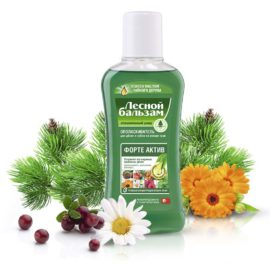 Popular brands of oral care products include:
Popular brands of oral care products include:
- Lacalut.
- Colgate.
- "Forest Balsam."
- Parodontax.
- Listerine.
- Splat.
- Prezident.
But the rating does not mean anything, since all cases are individual. If the medication is recommended by the Dental Association of Russia and Moscow, this does not mean its universality. All brands have more than one mouthwash, so the list of the best brands is only a “card in the direction indicated." The dentist can prescribe a completely different drug, focusing on the characteristics of the patient. In some pathologies (periodontal disease, aphthous stomatitis), even complex therapy is indicated.
Conditioners for children
You can use the rinse aid from the age of 6, but this is permissible only under the supervision of adults. Up to 12 years, children usually rinse their mouth with special alcohol-free disinfectants, they have a pleasant taste and do not contain sugar.
Mouthwashes are prescribed for children with dental problems, as well as when replacing primary teeth with molars. This procedure allows you to further strengthen and fluorinate tooth enamel. After 12 years, a child can use adult balms, but they should be diluted with water due to the relatively high concentration of alcohol and some active substances.
The child's body is quite sensitive, so it is better to replace medications with herbal infusions with an antiseptic effect.
Mouthwash is a medication that is actively advertised and promoted on television, but because of this it has not turned into a harmless mineral water. This drug has a complex chemical composition, and therefore cannot be used unsystematically.


